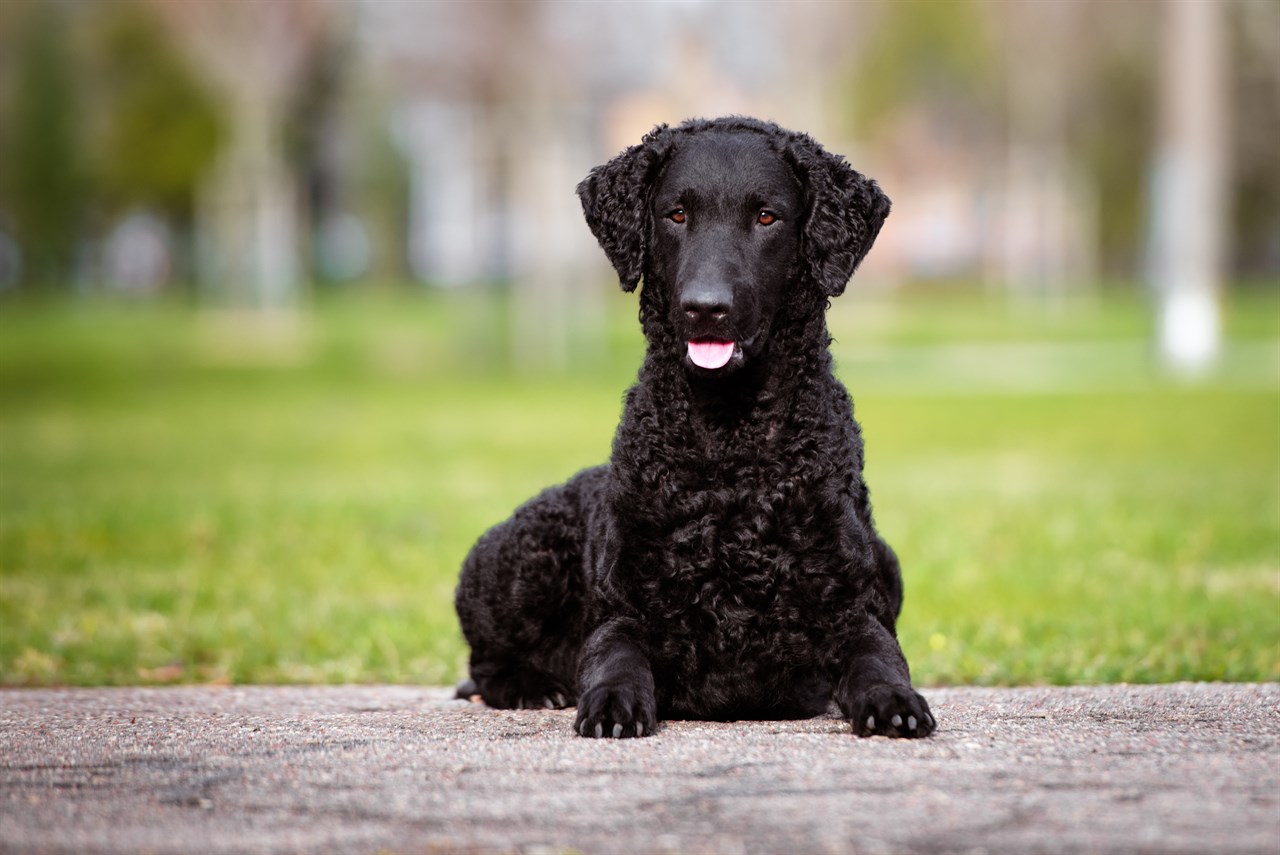Downsides or Disadvantages of Owning a Curly Coated Retriever

While Curly Coated Retrievers make wonderful companions for the right owners, it's essential to consider the potential downsides and disadvantages of owning this breed. Understanding these challenges can help you make an informed decision about whether a Curly Coated Retriever is the right fit for your lifestyle and preferences:
- High Energy Level: Curly Coated Retrievers are an active breed with high energy levels. They require consistent exercise and mental stimulation to stay happy and well-behaved. Failing to meet their exercise needs can lead to boredom and behavioral problems.
- Independence: This breed can be independent and strong-willed at times. While they are intelligent and capable of learning, they may challenge inexperienced owners or exhibit stubborn behavior.
- Grooming Demands: The unique curly coat of this breed requires regular grooming and maintenance. Their dense coat can become matted if not properly cared for, and they are not considered hypoallergenic.
- Potential for Separation Anxiety: Some Curly Coated Retrievers are prone to separation anxiety when left alone for extended periods. This can lead to destructive behavior and excessive barking if not addressed through training and gradual acclimation.
- Strong Prey Drive: Due to their retriever heritage, Curly Coated Retrievers may have a strong prey drive. This can lead to chasing small animals, which may be problematic if you have other pets like cats or rabbits.
- Late Maturity: Curly Coated Retrievers can take longer to mature compared to some other breeds. This means they may retain their puppy-like energy and exuberance for an extended period, which can be challenging for some owners.
- Health Concerns: Like all breeds, Curly Coated Retrievers can be prone to certain health issues, including hip dysplasia, elbow dysplasia, and eye conditions. Responsible breeding practices and regular veterinary care are crucial for managing these concerns.
- Not Ideal for First-Time Owners: Due to their high energy, independence, and potential for stubbornness, Curly Coated Retrievers may not be the best choice for first-time dog owners who may not be fully prepared for the breed's demands.
- Cost of Ownership: The costs associated with owning a Curly Coated Retriever can be significant. This includes expenses for high-quality food, grooming, veterinary care, and training.
- Shedding and Allergies: While not heavy shedders, Curly Coated Retrievers do shed, and their curly coat can trap allergens. They are not considered a hypoallergenic breed, which can be a concern for allergy sufferers.
In conclusion, owning a Curly Coated Retriever can be a rewarding experience for those who can meet their exercise, grooming, and training needs. However, it's essential to be aware of the potential downsides and challenges associated with this breed to ensure that you can provide the care, attention, and environment necessary for a happy and healthy Curly Coated Retriever.
Curly Coated Retriever puppies for sale
- Find Curly Coated Retriever puppies for sale in ACT
- Find Curly Coated Retriever puppies for sale in NSW
- Find Curly Coated Retriever puppies for sale in NT
- Find Curly Coated Retriever puppies for sale in QLD
- Find Curly Coated Retriever puppies for sale in SA
- Find Curly Coated Retriever puppies for sale in TAS
- Find Curly Coated Retriever puppies for sale in VIC
- Find Curly Coated Retriever puppies for sale in WA